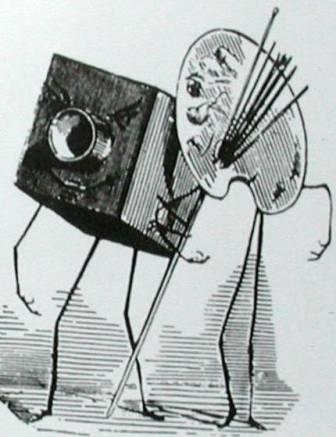 |
| HOME | GLOBAL | DISTRICTS | CLUBS | MISSING HISTORIES | PAUL HARRIS | PEACE |
| PRESIDENTS | CONVENTIONS | POST YOUR HISTORY | WOMEN | FOUNDATION | COMMENTS | PHILOSOPHY |
| SEARCH | SUBSCRIPTIONS | JOIN RGHF | EXPLORE RGHF | RGHF QUIZ | RGHF MISSION | |
|
|
|
|
|
The Real Battle for Minds and Hearts
On the same day that David Tidmarsh, 14, of South Bend, Indiana, won Scripp’s National Spelling Bee over a 13 year old named Akshay Boddiga, there was another national champion, Gregory Gauthier of Illinois, crowned in the MathCounts 2004 competition. It is fascinating for me to watch these young people, ages 10 to 15 (who have already scored over 1500 on their SAT tests). It was like a beauty contest of minds.
As a teacher, I watch these competitions (which do not get the coverage like local sporting events) with a kind of shock and awe. I could not spell that well in college, let alone at the age of 10. And these whiz kids figure out the answers even when they do not recognize the word from the list of thousands of study words that their spelling coaches ask them to memorize. The math is even more of a mystery for me (although that is what got me into college). How can they get the answers to extremely difficult problems so quickly? When they miss, I can see that they rang in early to beat the other guy. It was all “guys” in the finals of these “mathletes” and whiz spellers and geography buffs. In fact, in all the quarter-finals, five of the eight finalists were Oriental/Americans with one Indian.
The two boys who won two of the three competitions had to win over boys who were first generation Americans: one of Indian and one of Chinese parents (who smiled knowingly in the audience with a glint of subdued pride). When David won by spelling two impossible words in a row (impossible for me, not him), tears filled his eyes and his voice was a struggling hush. What ran through my mind on watching these competitions: geography, spelling and math, was how all these young people were winners. It was the same as earlier in the week when I watched the geography competition with wonder in my throat and mind.
True to form, most of the geography, math and spelling competitors were of Oriental or Middle Eastern origin. Akshay was the younger brother of the 2002 national spelling bee champion. A large percentage of America’s next top science and math geniuses were descendents of new immigrants. That got me to thinking. While America has been in wars in Afghanistan and with Iraq for the last few years, what has India and China been doing in that same time?
A news report the other day gave me a glimpse into an answer. In 2003, in one week, there were 900 jobs openings in India in their computer companies. They had one million applicants. Out of their population, approximately 200,000 million have science and math training. No wonder that Silicon Valley in California is now filled with Indian computer engineers (who at some time in the future will return home to train the next generation of skilled workers). I am sure that one look at China right now sends shivers down Bill Gates back (and a smile to his face as he contemplates outsourcing there). With a projected population of 1.3 billion people by the end of 2004 (and we know that at least 10% of any population is the brightest and the best), therefore China has 130,000 million young people like the ones that I watched on the national geography and spelling bee or excelling as mathletes. As America fights terrorism with its young men and women, its economy, and its ideas, China and India are using most of its resources to take over the world’s economy. America has the danger of becoming the “Bush League” of the future. The competition that we should recognize (before we wake up and find that it is already too late to compete) is the one for ideas and skills. Right now, America has a growth rate of a little over 4%. China has 9.5% and growing. We are still ahead of China and India in our standard of living but with a two to one growth rate, both those emerging countries will level the economic playing field some day. Another discouraging note in that direction is one in six American young people have no job and are not in school.
In the 19th and early 20th century, the world believed that the big army (the survival of the fittest) was the way to win the outcome of any competition (bigger and more was better). Now, in the 21st century, we know that ideas with the right people to augment them change the world. Now is a time to battle for the minds of people. And America may be, and probably is, behind in that competition! America’s leaders have given all our resources to trying to defeat the bad guys while the real competition for the future is probably with the good guys.
This article is also part of our "Peace Journey" and you can read this article again in the context of a larger peace project. |
| RGHF peace historian Joseph L. Kagle, Jr., 8 July 2006 |
